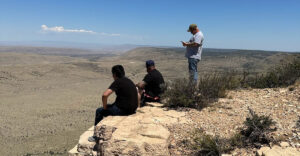It’s a topic that’s tough to think about let alone discuss on a regular basis, but it’s prevalent in the community and important to know the signs to look out for: human trafficking. Human trafficking is the recruitment, harboring, transportation, or obtaining of a person for the purpose of a commercial sex act where such an act is induced by force, fraud, or coercion, or in which the person induced to perform such act has not attained 18 years of age or subjugation, servitude, or bondage.
Human trafficking happens across the state of New Mexico in both cities and in rural communities. The New Mexico human trafficking statute was enacted in 2008 by the New Mexico Office of the Attorney General (NMOAG). The task force began media campaigns to involve the public in statewide training efforts. Since the task force’s inception, there has been a dramatic increase in identified human trafficking cases. These human trafficking cases are complex, often involving labor exploitation, sexual exploitation, domestic violence, pornography, door-to-door sales crews, escort services, truck stops (sex trafficking), human smuggling, gang activity, drug trafficking, and money laundering. Effective enforcement requires a coordinated, collaborative, multi-disciplinary approach to investigate these diverse aspects of criminal conduct. Community education and media efforts are part of the approach to reducing this particular crime across the state.
If you suspect human trafficking, call the National Human Trafficking Hotline 1-(888)-373-7888, the New Mexico Hotline 505-GET-FREE, or call/text the New Mexico Dream Center’s Emergency Line: 505-504-1301. If you’re uncertain as to some of the signs of the criminal activity, here’s list of labor trafficking indicators: an employee is forced to work against his or her will; is under excessive control; is experiencing threats or abuse; is required to live in controlled housing; owes debt to a potential trafficker; is unable to keep wages; or exhibits excessive fear or submission.
- Evidence of violence, abuse, distress, or excessive control
- Unaccompanied minor(s) in a room, especially during school hours
- Constant flow of quests to a room or men waiting in the hall to enter a room
- A person monitoring the hallway “Do not disturb” sign posted on door or refusal of cleaning for several days or duration of their stay
- Extended stay with few or no personal possessions Individuals not leaving the room or leaving infrequently at unusual hours
- Guest or visitor asking for food, money or help
- One person controlling the money or documents of another person(s) (ex. passport, ID, or Social Security Card












